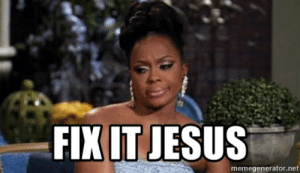Thanks, But We've Got One of Those
In 2020, I went on sub with my first novel. I was fresh off the high of acquiring an agent, and was fairly a great deal optimistic about the fate of my novel. It didn’t take long before the rejections started to pour in. I like to think I took them in stride. This is publishing, after all; rejection is the name of the game. About a month into submission, I got a rejection which said, and I paraphrase:
“This is definitely the kind of fantasy I’m looking for, unfortunately I’m currently in talks with an author whose project has a similar vibe … so I’m going to have to pass …”
I shrugged it off. Bad timing and all that. Shit happens. Perhaps if we’d gone on sub a little earlier. Perhaps if I’d managed to clinch an agent a little earlier. Perhaps if we’d subbed to a different editor. Perhaps, perhaps, perhaps.
But—
The more I thought about it, the more I realized that I was bothered.
Some context: I am a Nigerian writer, and my work was pitched as ‘West-African inspired fantasy in the vein of …’
I could not help myself, and I did a little bit of sleuthing. Indeed, weeks later a deal was announced for an author of colour at the same imprint whose North-African inspired fantasy had just been acquired. I did read the book when it came out, and it is a beautiful book. But it read nothing like mine.
I found myself haunted by the language of that rejection, and what it meant: there can only be one, or at most, a precious few.
Has it not been proven that readers want more and more of the familiar, as evidenced by decades of medieval England-inspired fantasy where one farm-boy hero can be replaced with another? Has it not been proven that readers of colour want more and more of the familiar?
The recent antitrust trials exposed to the wider world what has long been known in the industry: that the powers that be in publishing are largely detached and generally clueless about the people without whose work, sweat and intellectual property the industry cannot exist; time and resources are devoted to maintaining the status quo because “that’s just how it’s been done.” They run on, and I shudder to even write this, vibes. But that word and the sentiment behind it is a prevarication because it would imply that what gets published is a product of a collected emotional response to a material with market potential. But what does it mean when “vibes” have looked the same for decades? What does it mean when “vibes” have consistently fallen short of expectations? What does it mean when historically underrepresented authors are consistently held to a different—higher—standard?
“Vibes” smiles to your face, and apologizes while sticking you with the pointy end of the sword. Black/Brown? Writing about something “not relatable?” Ah, well … And you should be so lucky that they hem and haw and lead you on until you’re so very gently let down. Sometimes you’re simply told: Thanks, but we’ve got one of those.
It is not hyperbole when I say that some of the best, richest fantasy of the past five years have been those told by underrepresented authors who approach the genre from an oft-overlooked perspective. It is not hyperbole when I say that still, alas, there are a precious few of us. Because, good God, thanks, but we’ve got one of those.
And yet—and yet—we have some writers (those who remember an age where their sandbox was not littered with the Black/Brown bodies) bemoaning their plight and how hard it is for them to get published these days.
Please.
I would be remiss if I did not acknowledge the fact that there is progress being made. Grudging, painful; as exhausting as trying to drain an ocean with a teacup. I long for the day when progress is not measured in inches, when every step forward is not countered by two in regress, when there exists a genuine excitement across publishing for the multitude of voices and stories and perspectives, when we hear, please, can I get another one two hundred of those?
Perhaps it is a dream. But that is what writers do. That is what I do.
Dream.


